Oral Cancer | Medical Science Optional Notes for UPSC PDF Download
Oral Cavity - boundaries
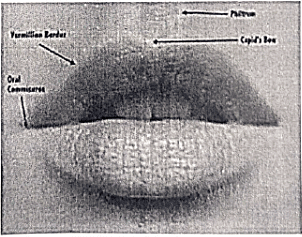
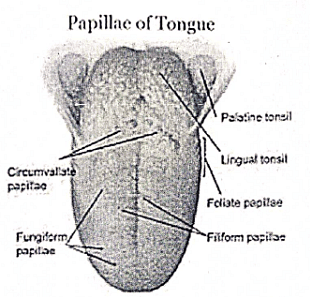
Oral Cavity - Parts
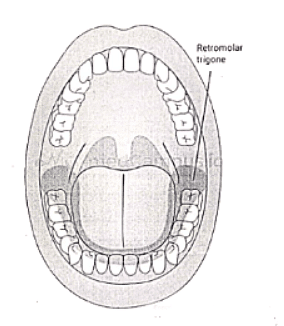
Causes of mouth ulcers
- Oral Thrush
- Herpes simplex
- Hand foot and mouth disease
- GERD
- Lichen planus
- Syphilis
- SLE
- Tubercular ulcers
- Apthous ulcers
- Drug reactions
- Pemphigus/Pemphigoid
Etiology of Oral cancer
- Tobacco
- Alcohol
- EBV infection
- Chronic irritation by dentures
- Poor nutrition
- Poor oral hygiene
Premalignant lesions
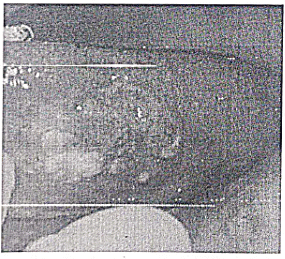
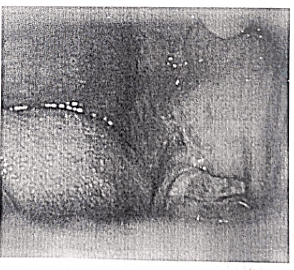
HIGH-RISK LESIONS
- Erythroplakia
- Speckled leukoplakia
- Chronic hyperplastic candidiasis
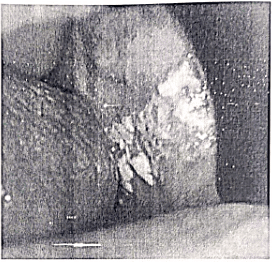
MEDIUM-RISK LESIONS
- Oral submucous fibrosis
- Syphilitic glossitis
- Sideropenic dysphagia (Paterson-Kelly syndrome)
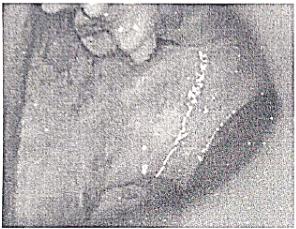
LOW-RISK/EQUIVOCAL-RISK LESIONS
- Oral lichen planus
- Discoid lupus erythematosus
- Discoid keratosis congenita
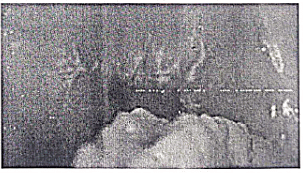
The potential risk for malignant transformation:
- Increases with increasing age of the patient
- Increases with increasing age of the lesion
- Is higher in smokers
- Increases with alcohol consumption
- Depends on the anatomical site of the premalignant lesion
Field Cancerisation

" Separate primary tumours may not represent distinct genetic mutational events but rather the same clonal origin of cells, which migrate to separate sites in the upper aerodigestive tract "
Management
- TNM Staging: Utilized for cancer staging based on tumor size (T), lymph node involvement (N), and distant metastasis (M).
- General Management Principles for Oral Cancer:
- Comprehensive and individualized treatment based on the stage and characteristics of the cancer.
- Incorporation of surgery, radiation therapy, chemotherapy, or a combination as required.
- Emphasis on multidisciplinary approaches and patient-centered care.
- Management Approach for Tongue Cancer:
- Tailored treatment plans based on the tumor's stage, size, and location.
- Possible interventions include surgery, radiation therapy, chemotherapy, or a blend of these modalities.
- Focus on preserving tongue function while ensuring effective cancer control.
- Importance of post-treatment rehabilitation and follow-up care to monitor for recurrence or complications.
TNM Staging
Primary Tumor (T)
- TX: Unable to evaluate the primary tumor.
- TO: Absence of detectable primary tumor.
- Tis: Carcinoma confined to the site of origin.
- T1: Tumor size less than 2 cm.
- T2: Tumor size between 2 and 4 cm.
- T3: Tumor size between 4 and 6 cm.
- T4: Tumor invasion into adjacent structures like the mandible or skin.
Regional Lymph Nodes (N)
- NX: Unable to assess regional lymph nodes.
- NO: No metastasis observed in regional lymph nodes.
- N1: Presence of metastasis in a single nearby lymph node less than 3 cm in size.
- N2a: Metastasis in a single nearby lymph node between 3 and 6 cm in size.
- N2b: Metastasis in multiple nearby lymph nodes, none exceeding 6 cm in size.
- N2c: Metastasis in bilateral or opposite side lymph nodes, none exceeding 6 cm in size.
- N3: Metastasis in any lymph node larger than 6 cm.
Distant Metastasis (M)
- MO: No indication of distant metastasis.
- M1: Presence of distant metastasis.
Investigations
- MRI
- CT
- FNAC/BIOPSY
General Principles in Management
- Team approach
- Aim for
a) cure
b) Functional outcome - Surgery is primary modality of treatment
- Case of Previous RT?
- Field Change?
Management of Carcinoma Tongue
Clinical Presentation:
- Ulcer
- Tongue pain
- Ankyloglossia
- Fetor oris
- Disarticulation
- Dysphagia
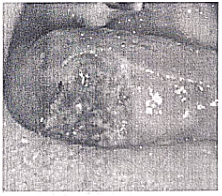

Previous Questions
Q1: Enumerate the various etiological factors of oral cancer. (1996)
Q2: Enumerate the premalignant lesions of oral cavity. How would you manage a 40 yrs. old smoker with a 2 x 2 cm ulcer on the right lateral border of tongue? (2009)
Q3: What are the boundaries and parts of oral cavity? Enumerate various factors predisposing to oral cancers. Briefly enumerate the assessment and treatment of a patient with ulceroproliferative growth involving anterior third of tongue. (2013)
Q4: List the causes of tongue ulcer. State the predisposing factors which may lead to development of tongue carcinoma. What is the preferred modality of treatment in carcinoma of the tongue? (2015)
|
7 videos|236 docs
|
FAQs on Oral Cancer - Medical Science Optional Notes for UPSC
| 1. What is TNM staging for oral cancer? |  |
| 2. How is oral cancer staged using the TNM system? |  |
| 3. What are the different stages of oral cancer according to the TNM system? |  |
| 4. How does TNM staging help in the treatment of oral cancer? |  |
| 5. Can the TNM staging system be used for other types of cancer as well? |  |















